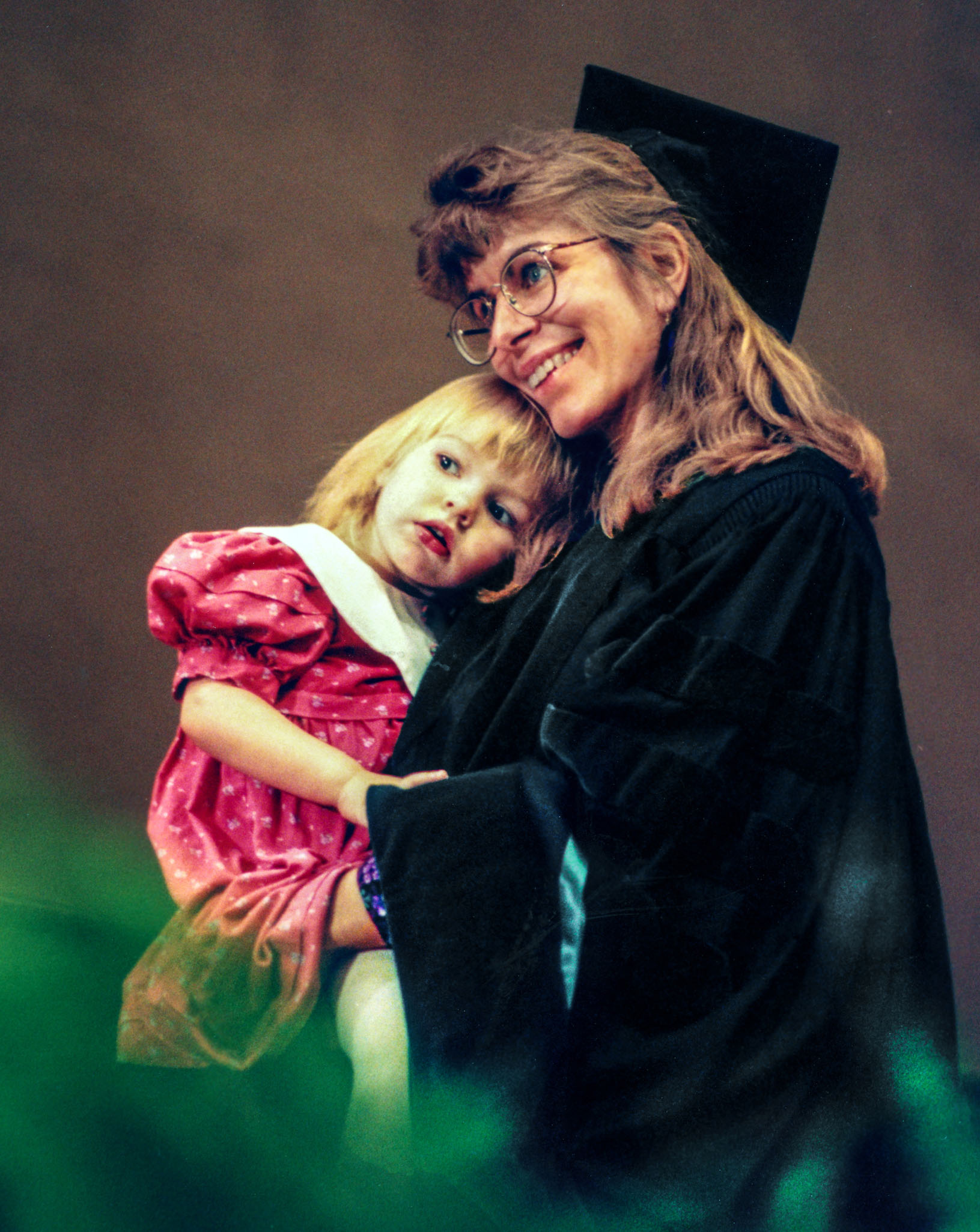A Journey from Doctor to Terminal Patient
February 9, 2022
 Before graduating from the College of Human Medicine in 1996, Sally Wilson, MD, had overcome many challenges – some welcomed, others visited upon her. A decade earlier, the self-described jock biked from Jamestown, Va., to Astoria, Wash., a journey she later described as “exhausting and exhilarating at the same time.”
Before graduating from the College of Human Medicine in 1996, Sally Wilson, MD, had overcome many challenges – some welcomed, others visited upon her. A decade earlier, the self-described jock biked from Jamestown, Va., to Astoria, Wash., a journey she later described as “exhausting and exhilarating at the same time.”
Medical school brought similar mixed reactions. Shortly before starting classes, Wilson was diagnosed with Hodgkin’s lymphoma, and she underwent a series of radiation treatments while pursuing a reduced class load. “That really knocked me out,” she said.
As she crossed the stage in the spring of 1996 to accept her diploma, Wilson bore more than the memories of all she had overcome. In her arms, she carried her 2-year-old daughter, Molly, born midway through the six years it took to complete medical school.
Much has changed since then. The doctor, facing a terminal illness, has become the patient, and the daughter she carried across the stage 25 years ago is in medical school, following in her mother’s footsteps.
“She’s so independent I don’t worry about her being a doormat to anybody,” Wilson said of Molly, now in her first year at the Wayne State University School of Medicine. “She’s always done everything on her own. It’s kind of what we do.”
It is a family trait. Wilson’s grandmother, Nettie May Ledwith, was a child psychologist who taught Dr. Benjamin Spock. Her mother, Jean Ledwith King, who died in October 2021, was a renowned attorney who won many cases advancing women’s rights in education, employment, politics and sports.
Wilson faces her illness with that same resolve tempered by a physician’s knowledge that this is one challenge she cannot conquer. “I started having late effects of the radiation that saved me from lymphoma,” she said. The massive radiation doses she received in the 1990s eventually left her unable to stand. Cardiomyopathy rendered her heart scarred and reduced its ability to pump blood, and autonomic dysfunction damaged the nerves that regulate her heart rate and blood pressure.
After medical school and residency, Wilson worked for a couple of practices, and then opened her own family medicine practice on main street in Charlotte, Mich., treating patients the way she wanted to be treated. She allocated an hour for each visit and was meticulous in caring for each patient, yet somehow was able to put her family first.
“I wanted it all,” Wilson said. “I didn’t go into medicine to have someone tell me what to do. I really felt like I made a difference. It was very satisfying work.”
A few years into her practice, the late effects of radiation began taking a toll. Between visits, she would lie on the floor, allowing her blood pressure to recover. In 2013, she retired.
“You can’t practice medicine if you can’t stand up,” she said. “It was a period of losses. The first loss was my image as a physician. That was very difficult. Then I had to give up my physical abilities – to mow the grass, to stand up in the kitchen and prepare dinner.”
These days she is a hospice patient, still living at home and cared for by her husband, John, and their son, Will, a computer science student at MSU who lives at home.
Recently she thought about the day she walked across the stage carrying her daughter and the photos of them that ran in MD Magazine.
Molly has joked with her roommate that, technically, she already has graduated from medical school, since she crossed the stage at MSU, although she doesn’t remember it.
She does remember, however, the kind of physician her mother was, how patients knew her personally and she knew and cared for them.
“I’m really glad I have my mom as a role model,” Molly said. Although her mother never urged her to attend medical school, “she didn’t discourage me from it either. It was my decision to make.
“I come from a legacy of pretty intense, independent women.”
Facing the end of life is difficult, her mother conceded, especially having a physician’s knowledge of what her future holds. She suspects her illness, the lymphoma and three other kinds of cancer, all stem from exposure to dioxane, a known carcinogen released by Gelman Sciences, a manufacturing site near where she grew up in Ann Arbor that has drawn lawsuits and government action.
“I think ignorance in some sense is bliss,” she said. “I wish I didn’t know as much as I do now. The fact that I can’t do anything about it, the fact that it is progressive and fatal, is frustrating.
“I do the best I can. I have so much to be thankful for. I have faith in God. I’m living at home in a very supportive environment. I just do the best I can.”

